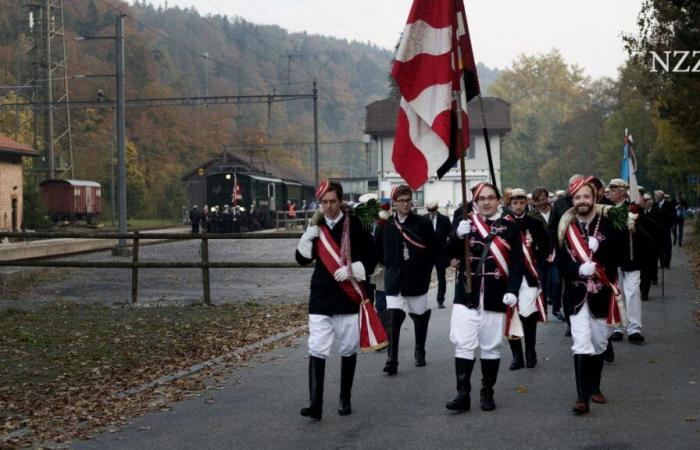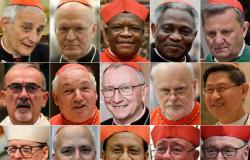An association only for men, and for no reason? This cannot be agreed with equality, the Federal Supreme Court judges.
The Zofingia is an active connection in Switzerland – here the Zurich section.
Christoph Ruckstuhl / NZZ
The Zofingia connection may no longer count on official recognition by the University of Lausanne and the EPFL. The Federal Supreme Court decided on Monday in two published judgments that the gender equality of gender is more difficult than the right to freedom of unification.
Optimize your browser settings
NZZ.CH needs JavaScript for important functions. Your browser or ad blocker is currently preventing this.
Please adjust the settings.
In 2014, the Federal Supreme Court had seen no reason to refuse to recognize the traditional connection. At that time it was argued that equality considerations had to be behind the fundamental right to freedom of association.
“Gazard for equal opportunities”
Now the highest court has revised this view. Universities are not only educational institutions, but also guarantees for equal opportunities, the decision says. A men’s association that does not open to women contradicts this claim and may therefore be excluded from institutional support.
The court argued that belonging to a connection could bring career advantages. This applies especially to a large, Switzerland union like the Zofingia with its around 3000 members. Such a national network is valuable.
The Association of Epfelles is not affected by the decision of the judges in Lausanne. The women’s association remains recognized as a university organization. According to the federal court, men’s clubs or women’s associations are not problematic per se. A practice, which is discriminatory, could be justified if it has an objective connection to the purpose of the association. Since the association of Epfelles is dedicated to the purpose of promoting women, the exclusion of men is legitimate. The situation is different with Zofingia, who is devoted to home, friendship and culture.
For the members of the Vaud Zofingia, the judgment means that in the future they will no longer use university infrastructures and that they are not allowed to present themselves on the universities’ website. They are also no longer managed as a student organization. For the association, founded in Zofingen in 1819-belonged to historical personalities such as Alfred Escher, Henri Guisan or Federal Councilor Jonas Furrer-the decision of the Federal Court is also the end of an over 200-year student tradition. The association may continue, but not at the university.
The Section Waudt had already founded the non -slaughtering connection in the first year of its existence. The decision of the Federal Court for the supporters of the association is also bitter because the Zofinger have always seen themselves as the pioneer of modern Switzerland. The foundation of over -confessional and national sections was still extremely progressive and emancipated at the beginning of the 19th century.
The connection from Lausanne reacts accordingly disappointed. Philippe Dal Col, lawyer of the Vaud Section and even Zofinger, told SRF that the Federal Supreme Court only had his argument from 2014 to pay homage to the social zeit.
The universities concerned, on the other hand, explicitly welcome the judgment. The EPFL sees this a progress for equality, the University of Lausanne refers to new coherence in dealing with university organizations.
National Council President Maja Riniker holds the speech
How much the Zofinger, who have rejected applications for admission to women several times, have lost the connection to the zeitgeist, shows the disturbance of the central festival from the end of April in Zofingen. An anonymous association that appeared as an “Antifa Zofingen” had announced Protest. In leaflets that were distributed to all residents, it was said that the Zofinger were a men’s association that has not yet overcome sexism and misogyny and also an elitist-conservative social picture.
Apparently not all women see it that way. National Council President Maja Riniker held the speech, and Zofingen City President Christiane Guyer told the “Zofinger Tagblatt” on Monday after the festival: “People from all over Switzerland will find our beautiful old town at the Central Festival. The connection to your federal city can be felt. »








